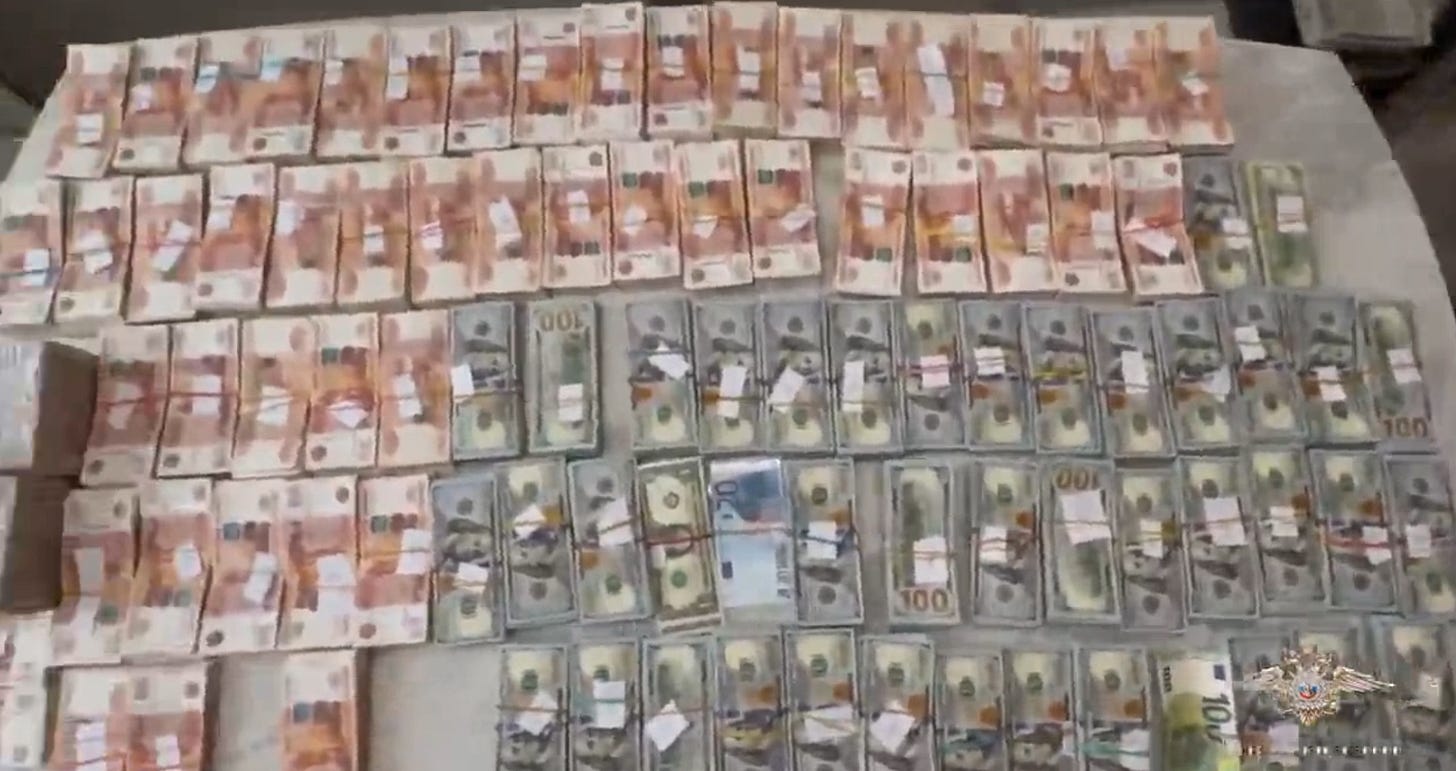How Cryptex and UAPS Became Central in Russia's Largest Cybercrime Sting
In a crackdown on cybercrime operations, the Russian Federation's Bureau of State Technical Surveillance and the Ministry of Internal Affairs executed a widespread operation on the same day, resulting in 148 search warrants and 96 arrests. This effort is directly linked to the recent sanctions imposed on Cryptex and UAPS, two entities deeply embedded in the world of illicit financial transactions and cybercrime.
According to the Moscow Times,
“The defendants were charged with the organization of and participation in a criminal association, illegal access to computer information, unlawful circulation of a means of payment and illegal banking activities, the Investigative Committee, which probes major crimes, said Wednesday. “
“[They] carried out illegal activities on currency exchange, cryptocurrency, delivery and acceptance of cash, sale of bank cards and personal accounts,” the Investigative Committee said. “The main clients of these services were cybercriminals and hackers who used the services to legalize their criminal income.”
During the raid, Russian officials recovered million of dollars in cash, luxury cars and even a helicopter among other items. If you want to watch the full raid video, you can do so here.
During the operation, Russian officials carried out 148 searches that spanned over 14 regions within Russia and were able to arrest 96 individuals.
Just prior to this event, the U.S. sanctioned Cryptex and announced that it was charging two Russian nationals in connection with “operating billion-dollar money laundering services.”
What Is Cryptex?
Cryptex is a virtual currency exchange registered offshore, notably in St. Vincent and the Grenadines, but it operates within the Russian financial ecosystem. The platform provides services to a variety of users, including cybercriminals, by facilitating transactions in cryptocurrency. What makes Cryptex particularly notorious is its role in ransomware operations.
According to U.S. authorities, it has handled over $720 million in transactions related to cybercriminal activities, with a notable portion stemming from ransomware operations
Cryptex allows users to exchange digital currencies into fiat money like the Russian ruble. However, it has become infamous for its lack of Know Your Customer (KYC) compliance, a critical regulation in anti-money laundering (AML) efforts. This has made it an attractive hub for those looking to launder money from cybercrime, including proceeds from ransomware attacks. It’s also been linked to Genesis Market, a prominent dark web marketplace that was taken down by international law enforcement agencies earlier in 2023
The Russian authorities' action against Cryptex can be seen as a domestic response to mounting international pressure, especially from the U.S. Office of Foreign Assets Control (OFAC), which sanctioned the platform under Executive Order 14024. The order, designed to disrupt cybercrime and prevent its financing, blocks assets and transactions related to Cryptex and other associated entities
UAPS and Its Role
UAPS is another key entity in this crackdown. UAPS functions as a payment processor often associated with darknet markets and fraud shops, where illicit goods, services, and data are traded. Like Cryptex, it operates in a manner that flouts international AML standards, making it a critical cog in the financial infrastructure that supports Russia-based cybercrime networks.
Both Cryptex and UAPS have long been identified as enablers of illegal financial flows. They assist ransomware groups, money launderers, and other cybercriminal actors by moving cryptocurrency in ways that obscure its origins, complicating efforts by law enforcement agencies to track and seize illicit assets. Their takedown marks a significant disruption in the shadowy underworld of cybercrime financing
International Context
The global cybercrime landscape has increasingly become a focal point of geopolitical tensions. Russian-linked cybercriminals have been accused of operating with impunity in a legal gray area that allows them to evade prosecution or even receive tacit support from the Russian government.
Platforms like Cryptex and UAPS operate with relative freedom within this ecosystem, which has caused major international entities, including the U.S. Department of Treasury, to issue sanctions and rewards for information leading to the arrest of key players behind these entities






